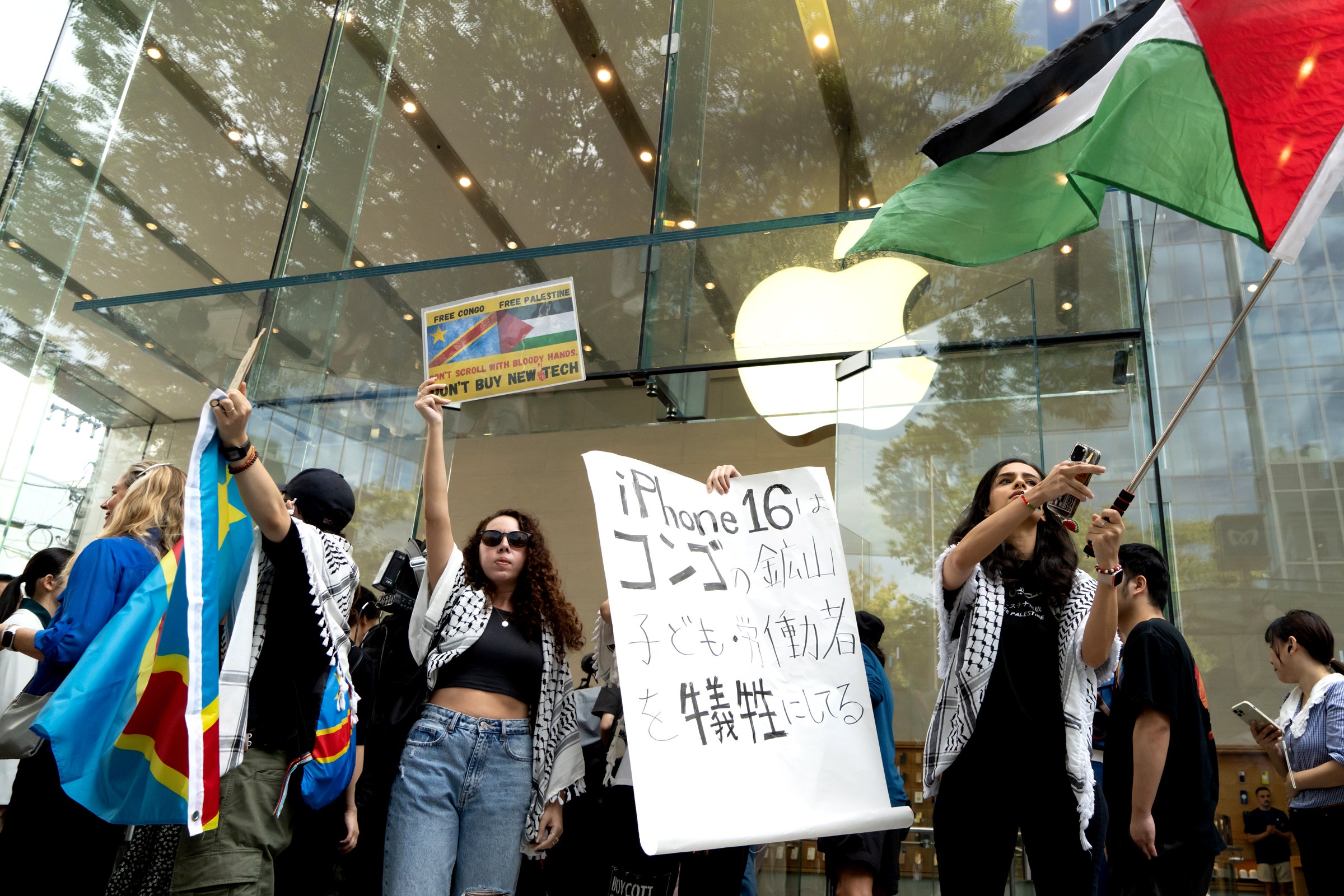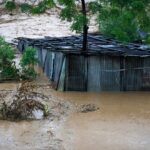On Friday, Apple enthusiasts eagerly lined up outside stores worldwide to get their hands on the much-anticipated iPhone 16. However, in over a dozen cities, their excitement was met by organized protests led by current and former Apple employees, calling for the tech giant to address pressing global issues.
The demonstrators—some holding banners that read “Apple Profits from Genocide”—urged Apple to take immediate action against sourcing cobalt from the Democratic Republic of the Congo (DRC). The mining industry in the DRC has long been criticized for its dangerous working conditions, exploitation of child labor, and severe human rights abuses. Despite Apple’s claims that it avoids sourcing minerals from such mines, the company has acknowledged challenges in fully tracking its supply chain. This scrutiny led to the removal of 12 suppliers in 2022, but concerns about “blood minerals” remain, especially as the Congolese government continues to investigate the company’s links to these unethical practices.
Protesters also pressured Apple to break its silence on the ongoing conflict in Gaza, which some international human rights experts have referred to as genocide. The group behind the protests, Apples Against Apartheid, consists of five current Apple employees and a dozen former staff members, many of whom worked in Apple retail stores.
Initially formed as Apples4Ceasefire, the group partnered with Friends of the Congo and local activist organizations to organize protests across ten countries. Demonstrators gathered in major cities such as London, Tokyo, Cape Town, Brussels, Amsterdam, Mexico City, and New York. One of the largest protests took place in Berlin, where more than 30 participants chanted from behind a police barricade, and five individuals were arrested, including a protester wearing a keffiyeh.
In the U.S., protests occurred at Apple’s flagship store on Fifth Avenue in Manhattan, as well as in Palo Alto and Berkeley. While the protests were small in size—often just a few individuals holding banners and flags representing the DRC and Palestine—they made a noticeable impact on launch day.
Tariq Ra’Ouf, a leading figure in Apples Against Apartheid and a former employee of 12 years at an Apple Store in Seattle, shared that the protests aimed to disrupt Apple’s most profitable day of the year. Ra’Ouf, who was fired in July under what they describe as a retaliatory act for speaking out against Apple’s “anti-Palestinian bias,” emphasized that the protest was about making Apple and its consumers reflect on the human cost behind its products.
As the protests gain momentum, Apple is facing growing pressure to address its involvement in unethical supply chains and take a stand on the global issues that its employees and customers are no longer willing to ignore.
Read more at Wired.







